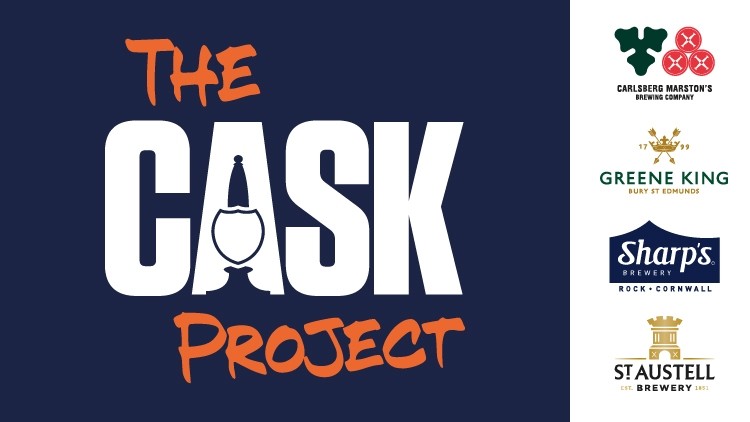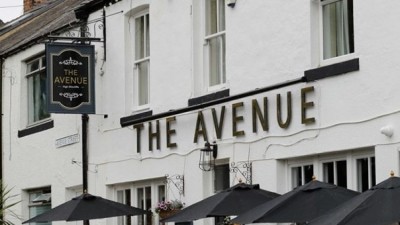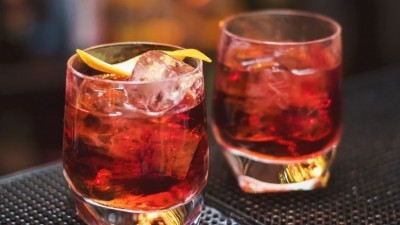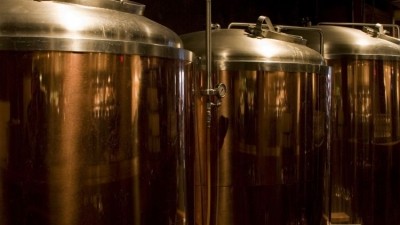the cask project - opinion
Young cask fans are not like other youngsters

I was also lucky enough to attend the MA Leaders event in Manchester where we heard from a fantastic panel of industry experts about the challenges for the cask ale category.
It’s clear there is a lot of love for this category within the trade, and some of the operational and technical advice I’m sure will go a long way to make sure that these products are served at their best to give that great customer experience the drink deserve.
However, one point seems to come up so often it’s almost becoming a cliché – “we need to appeal to a younger audience”. Undoubtedly YES. Our Lumina Intelligence Eating & Drinking Out Panel shows when you reach the age of 55-plus, you are over twice as likely to order a pint of cask ale. Not in doubt.
But what seems less clear is what on earth can be done about this. But these younger cask drinks do exist, so let’s take a look at who they actually are and what we can learn from them to create some action.
Interesting findings
So let’s get to know the 18 to 44-year-old ale drinker. Yes, we really are counting 44-year-olds as younger drinks in this example. I don’t want to bore you with demographics, which tend to actually tell us very little about people.
I’ve taken some time to look at psychographics, which give us much more insight into consumers’ lifestyles, beliefs and motivators, which has led me to some very interesting (and slightly unexpected) findings:
• Our younger ale drinks love trying new things – more than average 18 to 44-year-olds and certainly more than older ale drinkers
• They work out regularly! Again, much more than our older ale drinkers but also more than the average person in their age group
• They like buying branded products – well, this could be good or bad news
• They prefer independent outlets over chains and are much more likely to prioritise UK-produced food and drink than others their age – a trait shared across all ale drinkers
• Finally, they really value experiences
This builds up quite a picture of our younger cask ale drinker. They are active, conscientious and experimental. Are we appealing to these people with the current cask proposition in the market?
In many ways, yes. Cask ales tend to have strong provenance credentials, interesting brands and strong associations with independent businesses. Innovation is also strong.
But are we missing some tricks? Again, yes – probably.
Love for new things and brands
Our younger ale consumers love new things and associate strongly with brands. Is it time to take a creative and critical look at the traditional hand-pulls and badges, and see what we can learn from the vibrant and imaginative craft beer category that creates such strong stand-out on the bar and disrupts the habitual consumer ordering pattern.
I personally have no idea whether cask is more or less ‘healthy’ than other types of beer. This is probably important information to our health-conscious younger consumers, does it need to be called out more somehow?
Finally, how can we give these younger customers the experience they crave? Thinking practically, the experiential aspect is most often seen as the serve. Is it time to take a look at glasswear? Has the tankard had its day and how can we bring a bit more of the brand or category personality to the glass.
Maybe there is also a consumer-facing campaign that can be communicated about the perfect serve for cask ale. I’m sure this obvious to many in the trade and those ale-expert consumers but might be a great way to engage younger, enthusiastic wannabe cask ale drinkers.
So in summary, if we’re serious about changing the perceptions of cask ale with younger drinkers I’m afraid it’s not as simple as just overcoming operational challenges that led us to the pouring of the perfect pint. We need to really challenge our creative thinking in what happens next.








